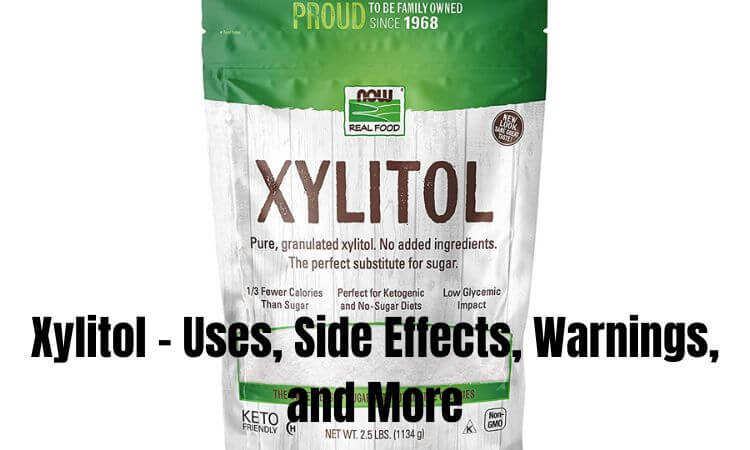Table of Contents
Xylitol – Uses, Side Effects, Warnings, and More
xylitol uses,xylitol for teeth,xylitol side effects,does xylitol cause cancer,xylitol diabetes,xylitol amazon,xylitol dogs,does xylitol cause weight gain,xylitol uses,xylitol for teeth,xylitol dogs,xylitol side effects,xylitol sugar,xylitol amazon
Overview
Xylitol is a type of sugar alcohol that occurs naturally in plants and can be found in a wide variety of fruits and vegetables. Because of its similar sweetness to sugar, it is frequently used in its place.
Xylitol has a pleasant flavor, but in contrast to sugar, it does not contribute to tooth decay. It inhibits the growth of germs in the mouth that are responsible for tooth decay, and it also fights bacteria that are the root cause of ear infections. It is a common ingredient in “sugar-free” chewing gum, mints, and various other types of candy.
Products sold in the United States that contain xylitol are permitted to make the claim that they lessen the likelihood of developing tooth decay. People also use xylitol to prevent tooth plaque, ear infections, dry mouth, and a variety of other problems, but the majority of these uses are not supported by solid scientific data.
DO NOT MISS: Methionine – Uses, Side Effects, Warnings, and More
It’s important to keep your dog away from xylitol. If your dog has consumed something that includes xylitol, you should take them to the veterinarian as soon as possible.
Uses & Effectiveness
Possible Therapeutic Benefit for Dental Caries Adults and children older than 5 years old who use oral care items like gum, candies and toothpaste that include xylitol has a lower chance of developing cavities than those who do not use these products. It is not known whether or not it assists in cavity prevention in children younger than 5 years old.
It may be helpful for treating ear infections (otitis media). It has been shown that reducing the incidence of ear infections in preschool children by giving them xylitol-containing items such as chewing gum, lozenges, or syrups on a daily basis after meals appears to work. However, administering xylitol after the onset of a respiratory illness does not appear to be effective in preventing ear infections.
There is an interest in utilizing xylitol for a variety of additional applications; however, there is insufficient trustworthy information to determine whether or not this could be beneficial.
Side Effects
When taken orally, xylitol is often administered through the ingestion of meals. Chewing gum, sweets, lozenges, toothpaste, and mouth rinses that contain it in levels up to roughly 50 grams per day may be safe to use. It is possible that it will give some persons diarrhea and gas.
It’s possible that consuming large amounts of xylitol could put your health at risk. The use of extremely high doses for an extended period of time may induce malignancies.
When used as a rinse in the nose, xylitol which has been combined with water to clean the sinuses may not have any adverse effects.
Special Precautions and Warnings
When taken orally, xylitol is often administered through the ingestion of meals. Chewing gum, sweets, lozenges, toothpaste, and mouth rinses that contain it in levels up to roughly 50 grams per day may be safe to use. It is possible that it will give some persons diarrhea and gas.
It’s possible that consuming large amounts of xylitol could put your health at risk. The use of extremely high doses for an extended period of time may induce malignancies.
When used as a rinse in the nose, xylitol which has been combined with water to clean the sinuses may not have any adverse effects.
Xylitol is typically found in foods and is safe to ingest during both pregnancy and breastfeeding. There is not enough trustworthy information available to determine whether or not xylitol can be used safely as a medicine during pregnancy or while breastfeeding. To be on the safe side, keep to the established food amounts.
YOU MAY LIKE THIS: Inositol – Uses, Side Effects, Warnings, and More
When administered orally to children in amounts up to 20 grams per day for a maximum of three years, xylitol may be safe for consumption.
Interactions
At this time, we do not have any information regarding XYLITOL’s interactions.
Dosing
It is possible to find xylitol in a wide variety of goods, such as chewing gum, lozenges, mouth rinses, dental wipes, toothpaste, and treatments for nasal irrigation. Talk to a medical professional about your symptoms to find out what kind of treatment and dosage would work best for your particular problem.



